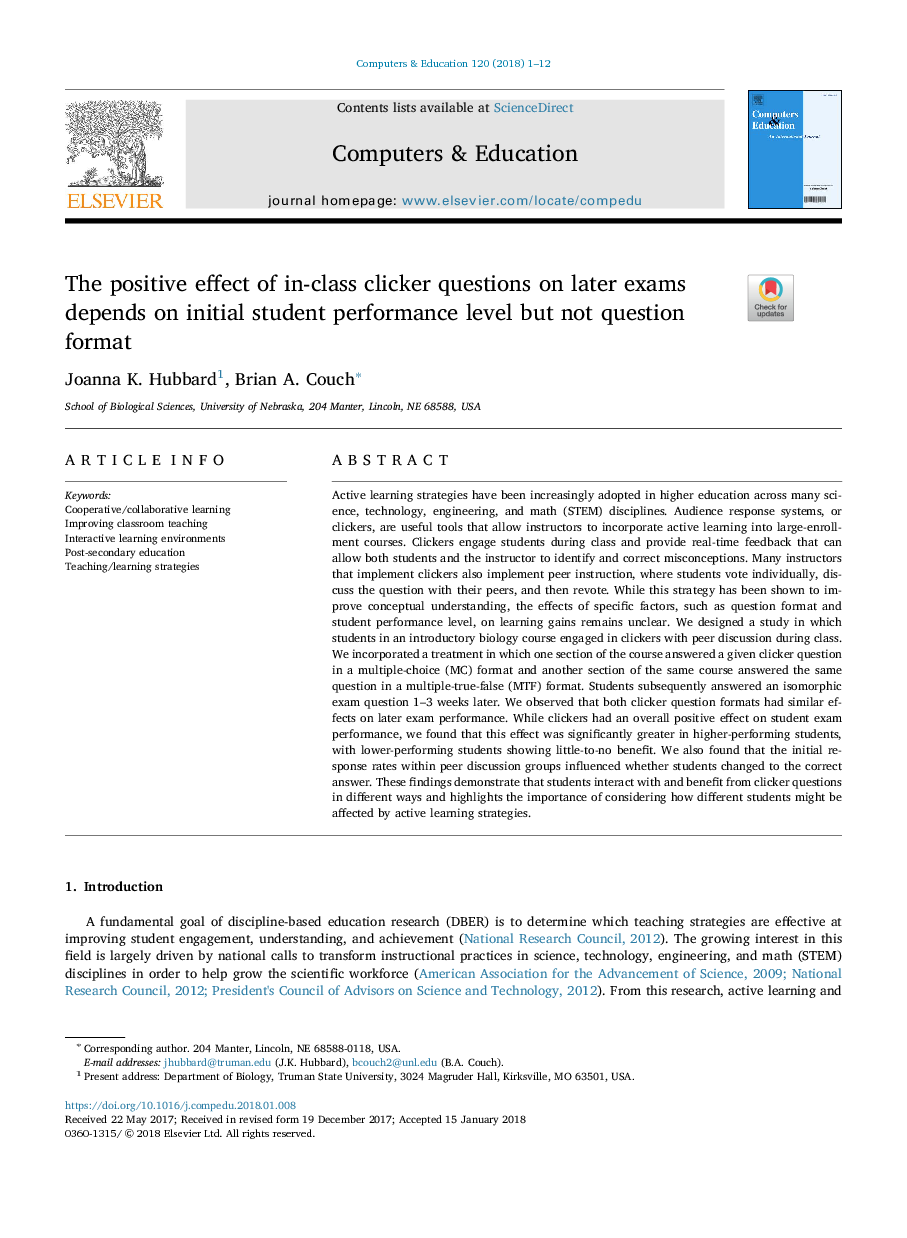ترجمه فارسی عنوان مقاله
تأثیر مثبت سوالات در کلاسهای کلاچر در امتحانات بعدی بستگی به سطح عملکرد اولیه دانش آموزان دارد، اما فرایند سوال نیست
عنوان انگلیسی
The positive effect of in-class clicker questions on later exams depends on initial student performance level but not question format
| کد مقاله | سال انتشار | تعداد صفحات مقاله انگلیسی |
|---|---|---|
| 133736 | 2018 | 12 صفحه PDF |
منبع

Publisher : Elsevier - Science Direct (الزویر - ساینس دایرکت)
Journal : Computers & Education, Volume 120, May 2018, Pages 1-12
ترجمه کلمات کلیدی
تعاونی / یادگیری مشارکتی، بهبود آموزش در کلاس درس، محیط یادگیری تعاملی، تحصیلات تکمیلی، استراتژی های آموزشی / یادگیری،
کلمات کلیدی انگلیسی
Cooperative/collaborative learning; Improving classroom teaching; Interactive learning environments; Post-secondary education; Teaching/learning strategies;

